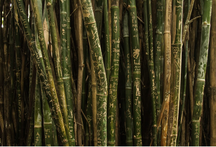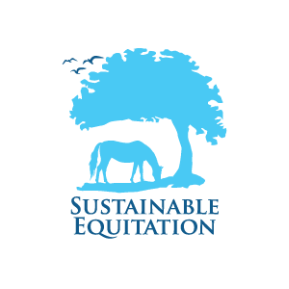
I write because without writing, living is like scrubbing newly sunburned skin. It’s too much. Writing is what you do with the milk soft smell of babies, a soprano voice and violins, and the first perfect plum of the season. It’s what you do when feelings and other people’s stories and your own stories get stacked one upon the other, higher and higher, until one day you look up and you can’t see the sun anymore. I write because writing turns everything into words. And words bring in the light.
I write because stories are like splinters – they’re better out than in. Some parts of the story of my first novel Seeing the Elephant came to me when I was a year into a PhD about the Vietnam War. I was way out of my depth… studying, parenting, running a business and almost definitely drowning, not waving.
I write because stories are like splinters – they’re better out than in. Some parts of the story of my first novel Seeing the Elephant came to me when I was a year into a PhD about the Vietnam War. I was way out of my depth… studying, parenting, running a business and almost definitely drowning, not waving.

We’d left Perth at 5am and by lunchtime we were at the Overlander Roadhouse. I opened the car door and the kids piled out followed by a drifting wake of lolly wrappers and a teddy bear with the fluff loved off it. As I shepherded them to the toilets I noticed that there was a car parked out the front of the roadhouse and on the back window a small sticker. A boomerang above a crossbow and the word Persevere. I’d been looking at the emblem for the Australian Army Training Team Vietnam for a year and see it there was suddenly strange, so far from home on our first ever family holiday.
There was a man sitting in the front of the car. He was eating a takeaway hamburger – fifteen bucks for the privilege that far from town. His eyes forward, greaseproof wrap folded back to allow for biting. When I knocked on the window he opened the door and looked at me – his face was thin but tanned and on his lip a small piece of lettuce stuck with mayonnaise.
I introduced myself and we got to talking. He leaned an elbow on the door of the vehicle and I squinted into the sun, feeling the heat of the ground beneath my feet like I was standing on the back of something hot blooded. On the edge of the door his fingers were blunt with use, the dirt worked deep into the creases.
We talked for a while. About Vietnam, about Post Traumatic Stress. His was diagnosed in 1989 after he tried to blow up his boss’s car, with the boss still in it. I watched my kids play on the grass and he said, “Chlorine and diesel fuel – bloody beautiful,” and laughed. “I could’ve done it too,” he nodded. “I was a heavy munitions expert in Vietnam. So I knew how, all I had to do was fine tune the fuse. But you know, things don’t always go to plan…”
There was a man sitting in the front of the car. He was eating a takeaway hamburger – fifteen bucks for the privilege that far from town. His eyes forward, greaseproof wrap folded back to allow for biting. When I knocked on the window he opened the door and looked at me – his face was thin but tanned and on his lip a small piece of lettuce stuck with mayonnaise.
I introduced myself and we got to talking. He leaned an elbow on the door of the vehicle and I squinted into the sun, feeling the heat of the ground beneath my feet like I was standing on the back of something hot blooded. On the edge of the door his fingers were blunt with use, the dirt worked deep into the creases.
We talked for a while. About Vietnam, about Post Traumatic Stress. His was diagnosed in 1989 after he tried to blow up his boss’s car, with the boss still in it. I watched my kids play on the grass and he said, “Chlorine and diesel fuel – bloody beautiful,” and laughed. “I could’ve done it too,” he nodded. “I was a heavy munitions expert in Vietnam. So I knew how, all I had to do was fine tune the fuse. But you know, things don’t always go to plan…”

He wiped his mouth with the back of a hand that was crisp with sun and years. “I ended up being committed for a stretch. There was a long time there when things weren’t great. I got to thinking that nothing mattered, you know. Like, what’s the point in struggling? It’s easier just to give up. But that was a while ago and well, I suppose I’ve moved on.”
“Anyway love,” he said “this’ll be me last trip. I’ve got cancer – started in the pancreas but it’s pretty much everywhere now. They’ve done all that chemo and what-have-you, but it’s no good, this is the last furlong for me.” He paused for a moment and brushed flies from his face. “I spent a lot of years forgetting Vietnam. People were always on at me to open up and talk about it – and I couldn’t. But now,” he smiled, “I’d talk the leg off a chair.” He shook his head, “Life’s funny like that, you know. First of all you want to forget, then you can’t bear to.”
He slid into the driver’s seat and without the door between us I could see the wasted hollows in his chest and his bony thighs. He wound down the window, stuck out his hand and smiled while his fingers closed about mine. I watched him drive away and his car grew smaller and the desert stretched out on either side of the highway – an endless inland sea.
I write because sometimes the stories are so big they need to be told over. Trees harvest light and store it in their leaves. When, thousands of years after those trees die and fall the coal is burned, it releases the once trapped light again. That’s writing. The thin black seam of words that we mine was once experience and emotion, stored as words. I write because I hope that someday someone will turn the pages of my work and find that light again.
“Anyway love,” he said “this’ll be me last trip. I’ve got cancer – started in the pancreas but it’s pretty much everywhere now. They’ve done all that chemo and what-have-you, but it’s no good, this is the last furlong for me.” He paused for a moment and brushed flies from his face. “I spent a lot of years forgetting Vietnam. People were always on at me to open up and talk about it – and I couldn’t. But now,” he smiled, “I’d talk the leg off a chair.” He shook his head, “Life’s funny like that, you know. First of all you want to forget, then you can’t bear to.”
He slid into the driver’s seat and without the door between us I could see the wasted hollows in his chest and his bony thighs. He wound down the window, stuck out his hand and smiled while his fingers closed about mine. I watched him drive away and his car grew smaller and the desert stretched out on either side of the highway – an endless inland sea.
I write because sometimes the stories are so big they need to be told over. Trees harvest light and store it in their leaves. When, thousands of years after those trees die and fall the coal is burned, it releases the once trapped light again. That’s writing. The thin black seam of words that we mine was once experience and emotion, stored as words. I write because I hope that someday someone will turn the pages of my work and find that light again.

 RSS Feed
RSS Feed
